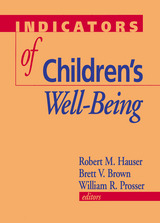
“If you want to understand how the latest advances in genomics and AI can completely transform your health, and to translate this promise into practical tools that you can apply today, read this book!”—Mark Hyman, author of Young Forever
Taking us to the cutting edge of the new frontier of medicine, a visionary biotechnologist and a pathbreaking researcher show how we can optimize our health in ways that were previously unimaginable.
We are on the cusp of a major transformation in healthcare—yet few people know it. At top hospitals and a few innovative health-tech startups, scientists are working closely with patients to dramatically extend their “healthspan”—the number of healthy years before disease sets in. In The Age of Scientific Wellness, two visionary leaders of this revolution in health take us on a thrilling journey to this new frontier of medicine.
Today, most doctors wait for clinical symptoms to appear before they act, and the ten most commonly prescribed medications confer little or no benefit to most people taking them. Leroy Hood and Nathan Price argue that we must move beyond this reactive, hit-or-miss approach to usher in real precision health—a form of highly personalized care they call “scientific wellness.” Using information gleaned from our blood and genes and tapping into the data revolution made possible by AI, doctors can catch the onset of disease years before symptoms arise, revolutionizing prevention. Current applications have shown startling results: diabetes reversed, cancers eliminated, Alzheimer’s avoided, autoimmune conditions kept at bay.
This is not a future fantasy: it is already happening, but only for a few patients and at high cost. It’s time to make this gold standard of care more widely available. Inspiring in its possibilities, radical in its conclusions, The Age of Scientific Wellness shares actionable insights to help you chart a course to a longer, healthier, and more fulfilling life.



The contributors address conceptual and methodological issues involved in measuring such important health status concepts as: physical, social, and role functioning; psychological distress and well-being; general health perceptions; energy and fatigue; sleep; and pain. The authors present psychometric results and explain how to administer, score, and interpret the measures.
Comprising the work of a number of highly respected scholars in the field of health assessment, Measuring Functioning and Well-Being will be of great interest and value to the growing number of researchers, policymakers, and clinicians concerned with the management and evaluation of health care.


READERS
Browse our collection.
PUBLISHERS
See BiblioVault's publisher services.
STUDENT SERVICES
Files for college accessibility offices.
UChicago Accessibility Resources
home | accessibility | search | about | contact us
BiblioVault ® 2001 - 2024
The University of Chicago Press









